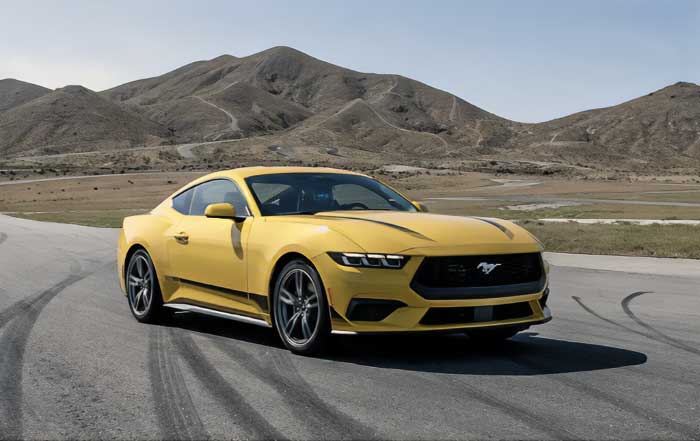The automotive industry is a cornerstone of the US economy, providing employment and contributing significantly to the country's GDP. Among the numerous car brands available in the US market, some have consistently stood out as the best-selling. This article delves into the top car brands in the US, examining their sales performance, market trends, and the factors influencing their success.
The Top Car Brands in the US
The US automotive market is dominated by several major brands, each with its own unique strengths and market strategies. According to recent data, the top three best-selling car brands in the US are Ford Motor Company, Toyota Motor Corporation, and General Motors (GM). These brands have maintained their positions through a combination of innovative products, robust distribution networks, and strategic marketing efforts.
Ford Motor Company, one of the oldest and most iconic American automakers, has been a leader in the US market for decades. The Ford F-Series, which includes models like the F-150 and F-250, has been the best-selling vehicle in America for over four decades. In 2023, Ford sold nearly 2 million vehicles, with the F-Series accounting for approximately 40% of those sales. The brand's success can be attributed to its commitment to quality, reliability, and innovation, as well as its extensive dealership network.
Toyota Motor Corporation, a Japanese multinational automaker, has also been a major player in the US market. The Toyota RAV4, a compact SUV, is one of the top-selling vehicles in the US, reflecting the growing demand for SUVs and crossovers. Toyota's strong brand reputation, coupled with its focus on fuel efficiency and safety, has helped it maintain a significant market share. In 2023, Toyota sold over 1.5 million vehicles in the US, with the RAV4 being a major contributor to its sales.
General Motors (GM), another American automaker, has also seen significant success in the US market. The Chevrolet Silverado, a full-size pickup truck, is GM's best-selling vehicle and ranks second in overall sales. GM's diverse portfolio of brands, including Chevrolet, Buick, and GMC, allows it to cater to a wide range of consumer preferences. In 2023, GM sold over 1.3 million vehicles in the US, with the Silverado being a key driver of its sales.
Market Trends and Factors Influencing Sales
The US automotive market has experienced significant fluctuations in recent years, influenced by various factors such as supply chain disruptions, economic conditions, and consumer preferences. In 2023, the market saw a notable increase in sales, driven by pent-up demand and improving dealership inventory. This growth was particularly evident in the sales of trucks and SUVs, which accounted for nine out of the top 10 best-selling vehicles in the US.
The rise of electric vehicles (EVs) has also been a significant trend in the US market. Tesla, a pioneer in the EV segment, has seen substantial growth in sales, particularly with its Model Y SUV. Tesla's aggressive pricing strategies and strong brand loyalty have contributed to its success. Other brands, such as Ford and Chevrolet, have also introduced EV models to capitalize on the growing demand for sustainable vehicles.
Regional Sales Performance
While national sales figures provide a comprehensive view of the market, regional performance can offer insights into local preferences and economic conditions. In the US, different regions exhibit varying sales patterns due to factors like population density, urbanization, and economic activity. For instance, the West Coast, known for its high population density and strong economic activity, tends to favor brands like Toyota and Tesla, which offer a range of models catering to urban consumers.
In contrast, the Midwest and Southern regions often prefer trucks and SUVs, reflecting the more rural nature of these areas. Brands like Ford and Chevrolet, which offer a wide range of pickup trucks and SUVs, tend to perform well in these regions. This regional diversity underscores the importance of tailoring marketing strategies to meet local consumer needs.
Impact on the Economy
The automotive industry plays a crucial role in the US economy, contributing significantly to employment and GDP. According to recent estimates, the auto industry supports around 4.5% of all US jobs, with employees collectively earning over $500 billion annually in compensation. The industry also contributes substantial tax revenues, with the American automotive sector contributing $2.3 trillion to the country's economy in 2021, representing 12% of the total US GDP.
The success of top car brands in the US not only reflects their market performance but also has broader economic implications. Strong sales can lead to increased economic activity, job creation, and higher tax revenues. Conversely, a decline in sales can have negative impacts on employment and economic growth.
Conclusion
The best-selling car brands in the US, including Ford, Toyota, and General Motors, have consistently demonstrated their market strength through a combination of innovative products, robust distribution networks, and strategic marketing efforts. The US automotive market is influenced by various factors, including supply chain disruptions, economic conditions, and consumer preferences. The rise of electric vehicles and regional sales patterns further highlight the complexity and diversity of the market.
Understanding these trends and factors is essential for both industry stakeholders and policymakers, as it can inform strategies aimed at promoting economic growth and job creation. As the automotive industry continues to evolve, it is likely that the best-selling car brands will adapt to changing consumer needs and market conditions, ensuring their continued success in the US market.

